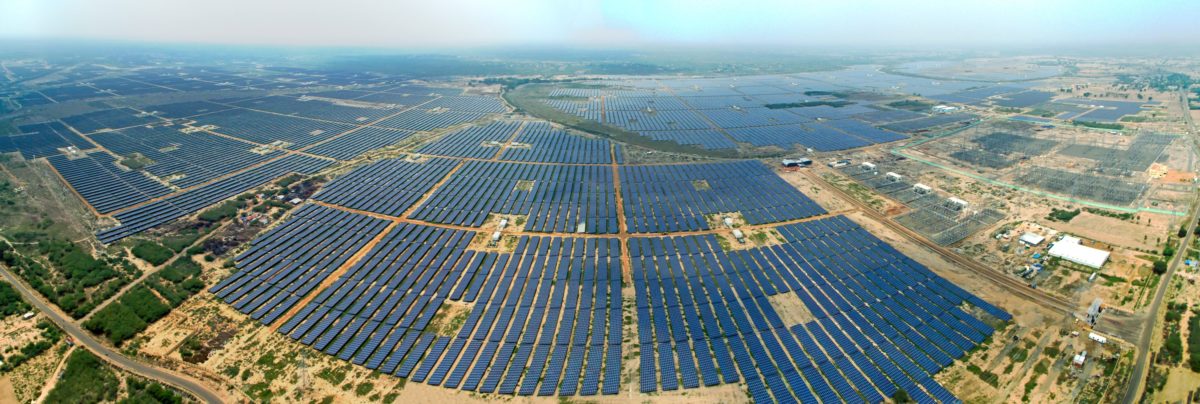Fitch Ratings believes liquidity profile of Indian solar power producers is largely unaffected amid Covid-19 outbreak as payment delay and curtailment risk remains insignificant for now.
“So far, Fitch-rated Indian renewable power generators have been receiving regular payments from their offtaking state distribution companies, with only minor issues in terms of payment delays and curtailment that do not significantly affect their liquidity”—Fitch Ratings said in a statement.
This is against the backdrop of the Ministry of New and Renewable Energy (MNRE) asking Discoms to make payments to renewable power producers on a regular basis as was being done prior to the Covid-19 lockdown. The ministry also clarified that renewable energy generating projects will continue to have “must run” status.
Fitch expects the situation to improve as the Ministry of Power (MoP) is preparing a package to infuse liquidity into the state distribution companies and ensure their dues are paid as indicated by the MoP’s order.
Comfortable situation for Azure, Adani Green
According to Fitch, Azure RG2 and Adani Green Energy Limited (AGEL) RG2—restricted groups of subsidiaries owned by the two companies—have a comfortable liquidity position. It expects the two RGs to be able to meet their mandatory expenditures in the next six to 12 months.
Citing reasons, Fitch stated: “[Both Azure and Adani Green Energy RGs] have over 60% of installed capacity contracted with sovereign-backed entities, such as Solar Energy Corporation of India Ltd (SECI) and NTPC Limited (BBB-/Stable), or state distribution companies with better payment records, like those in Gujarat. These counterparties are less likely to delay payments to power producers.”
Further, “the portfolios of these two RGs comprise only solar farms, which have quite low working-capital requirements. AGEL RG2’s debt service reserve account is fully funded, while Azure RG2 does not have any debt maturing this year.”
PPA renegotiation unlikely
Fitch does not foresee a significant risk of Indian states seeking PPA contract renegotiations amid the crisis as breaking existing contracts would have unaffordable repercussions for most of them.
“The decline in electricity demand is likely to be short-lived and demand in India is still growing, which requires more private capital funding for new projects. Any renegotiation of contracts could have a chilling effect on private investors and hurt the sustainability of infrastructure development within the states. The repercussions of breaking existing contracts would also be unaffordable for most state governments, which will discourage them from seeking changes to the PPAs,” Fitch said.
Extreme scenario
Fitch stated the risk of extreme scenarios (such as forced closure of plants or nonpayment by offtakers) remains low for now.
There are concerns that prolonged severe payment delays by state distribution companies will eventually undermine Indian solar power generators’ liquidity and weaken their credit profiles. This risk will be heightened if electricity demand falls steeply and recovery is prolonged.
Fitch expects “any plant closures or non-payment by offtakers to be short-lived, and would only temporarily stretch the liquidity of the affected power producer. This should not affect the asset’s ability to service near-term debt as the rated producers have debt service reserve funds or ready access to bank facilities.”
This content is protected by copyright and may not be reused. If you want to cooperate with us and would like to reuse some of our content, please contact: editors@pv-magazine.com.









By submitting this form you agree to pv magazine using your data for the purposes of publishing your comment.
Your personal data will only be disclosed or otherwise transmitted to third parties for the purposes of spam filtering or if this is necessary for technical maintenance of the website. Any other transfer to third parties will not take place unless this is justified on the basis of applicable data protection regulations or if pv magazine is legally obliged to do so.
You may revoke this consent at any time with effect for the future, in which case your personal data will be deleted immediately. Otherwise, your data will be deleted if pv magazine has processed your request or the purpose of data storage is fulfilled.
Further information on data privacy can be found in our Data Protection Policy.